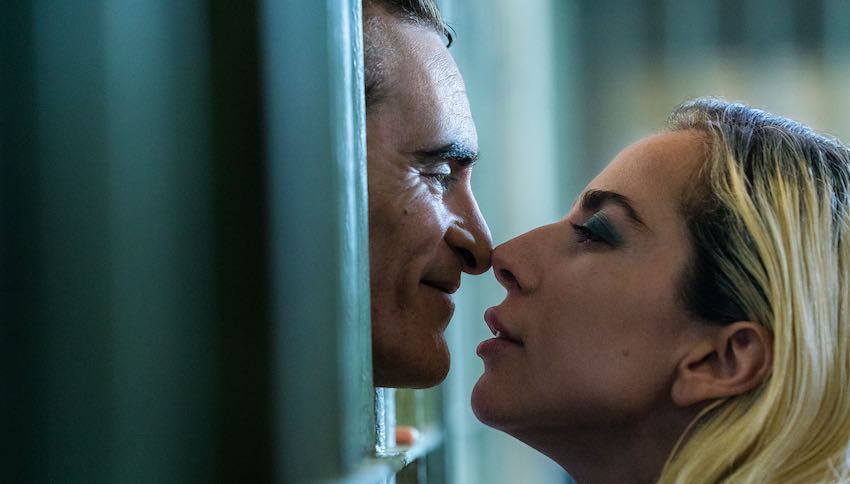'Joker: Folie à Deux' Movie Review: A Messed Up Love Story
- Details
- Category: New Series and Movie Reviews
- Published: Saturday, 05 October 2024 02:35
- Written by Lupe R Haas

As anticipated, JOKER: FOLIE À DEUX is primarily a "boy meets girl" love story, but with a twist—it’s told through the lens of a musical. This sequel reimagines the dynamic between Joker (Joaquin Phoenix) and Lady Gaga’s Harleen Quinzel, flipping the script on their relationship. Much like 2019’s JOKER, Todd Phillips delivers another thought-provoking film, one that distances itself from traditional DC properties, except for a surprising twist at the end. It's the kind of movie audiences will either love or loathe.
The film picks up with Arthur Fleck, aka the Joker, awaiting his murder trial in Arkham Asylum. There, he encounters another patient—Lee Quinzel, portrayed by Lady Gaga—a woman with the voice of an angel, but her own deep psychological struggles. The connection between them sparks a dark, yet captivating romance.
Falling in love reinvigorates Arthur, giving him the confidence to fully embrace his Joker persona once again. This time, however, his delusions take the form of a musical, with Lee as his leading lady. It’s no surprise Phillips cast Lady Gaga; her acting range and vocal prowess make her an ideal fit. Together, Gaga and Phoenix create hauntingly beautiful musical moments. Phoenix, a surprise in his vocal performance, proves he’s as capable in song as he was in WALK THE LINE, where he portrayed Johnny Cash.
The script, penned by Scott Silver and Todd Phillips, shifts the power dynamic between Joker and Harley Quinn. Lady Gaga’s character, known here as Lee Quinzel, takes on the role of the manipulator, pushing Arthur to embrace his chaotic nature. She wields control over Arthur, molding him into the Joker. He’s no longer the master of madness, but rather her puppet, worsening his already fragile state.
Phillips’ decision to focus on Arthur Fleck’s Joker, rather than the more familiar Jack Napier, allows for more creative freedom. Napier carries significant comic book and cinematic baggage, while Fleck, with his air of mystery, opens the door for subversion and new narratives. In FOLIE À DEUX, Phillips does just that, especially with the introduction of a more dominant and unorthodox Quinzel.
The film also touches on the theme of toxic fandom. Arthur retains a loyal following, which now includes Lee Quinzel, despite the public murder of Murray Franklin (Robert De Niro) in the previous film. Lee encourages Arthur to embrace his role as a disruptor, paralleling the real-world phenomenon of political figures inspiring devoted, and sometimes dangerous, fanbases. The film doesn’t attempt to answer why people idolize monsters or how they can inspire movements, but it raises the question in a timely manner.
While the musical numbers are central to the film, some may feel there are too many. A few sequences don’t necessarily move the plot forward or offer new insights into the characters. Still, Phoenix shines in one particularly intense fantasy sequence where Arthur experiences a harsh, sobering realization.
Once again, Phoenix fully inhabits the character of Arthur Fleck, navigating his many emotional states with precision. Even if viewers aren’t entirely satisfied with the film’s direction, Phoenix's performance is mesmerizing.
Lady Gaga, meanwhile, brings a fresh take on Harley Quinn, or Lee Quinzel in this iteration. Her character is far from likable—an enticing, manipulative figure who feeds Arthur’s delusions and insecurities. She’s less of a tragic sidekick and more of an instigator, pushing Arthur deeper into madness.
JOKER: FOLIE À DEUX is not a mainstream film by any means. Its blend of dark psychological drama and musical elements may polarize audiences, leaving them divided on the Joker’s evolving story. However, the final twist will undoubtedly have people talking, even if some see it coming.
JOKER: FOLIE À DEUX is now playing in theaters.